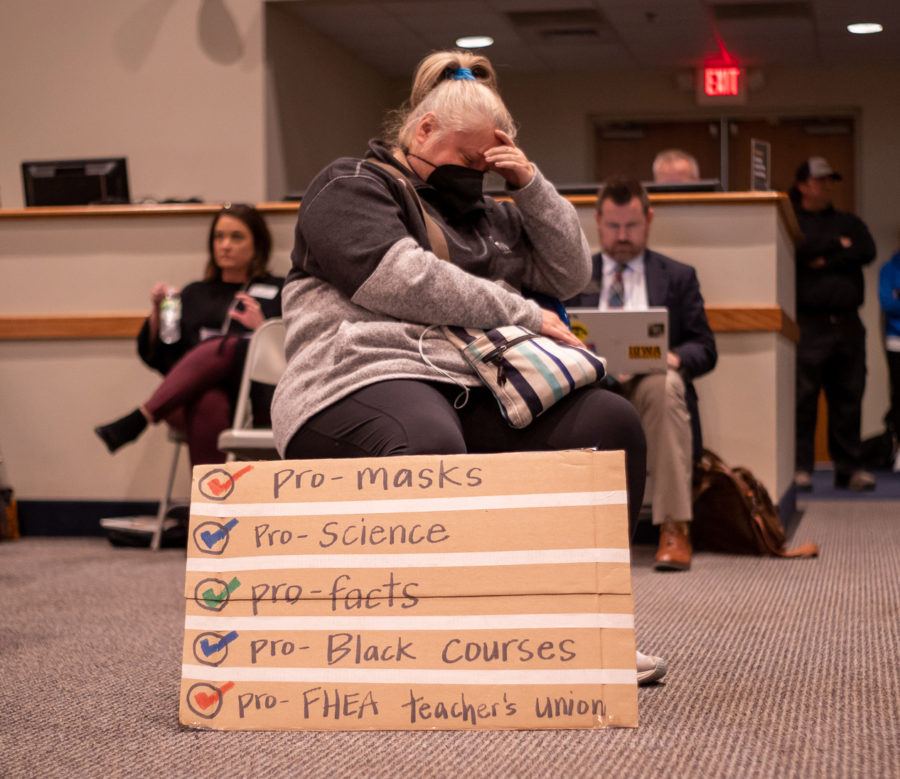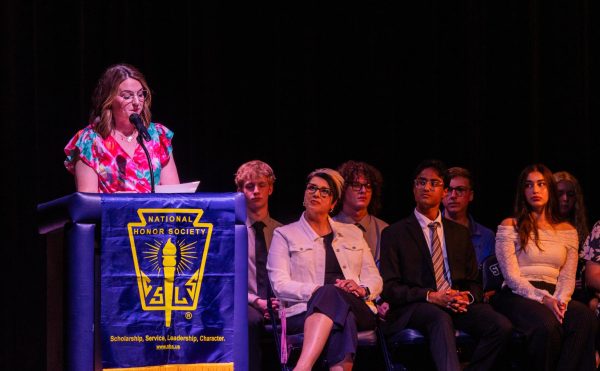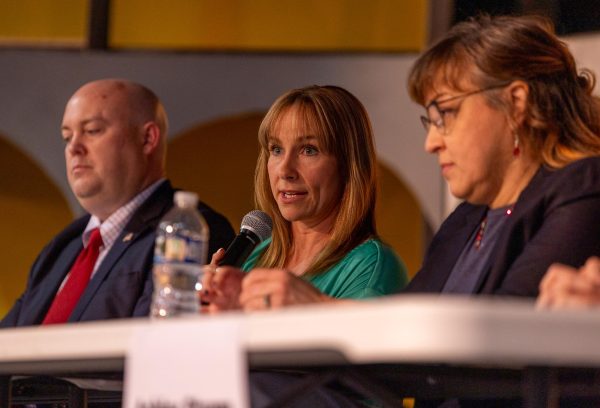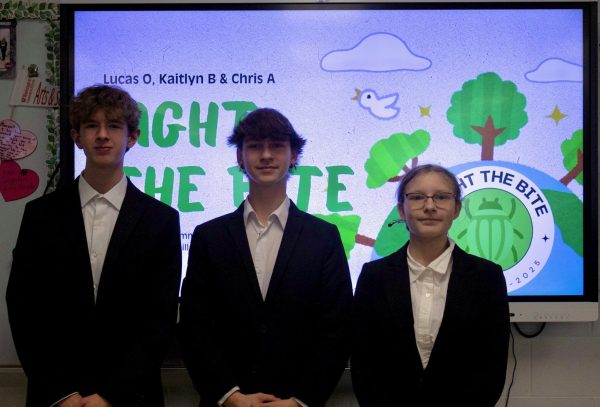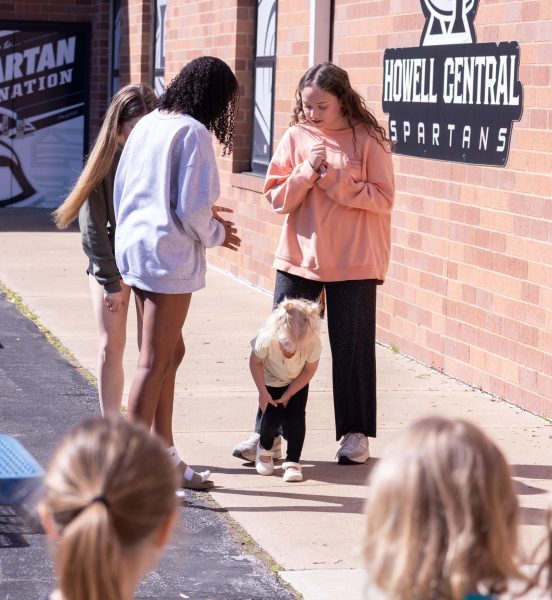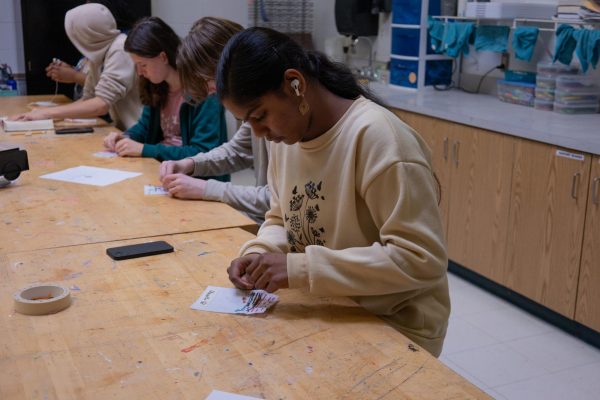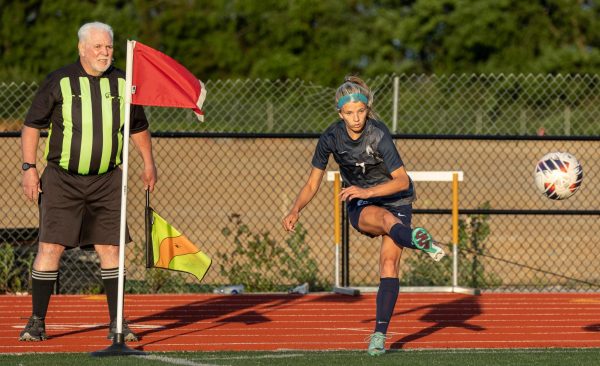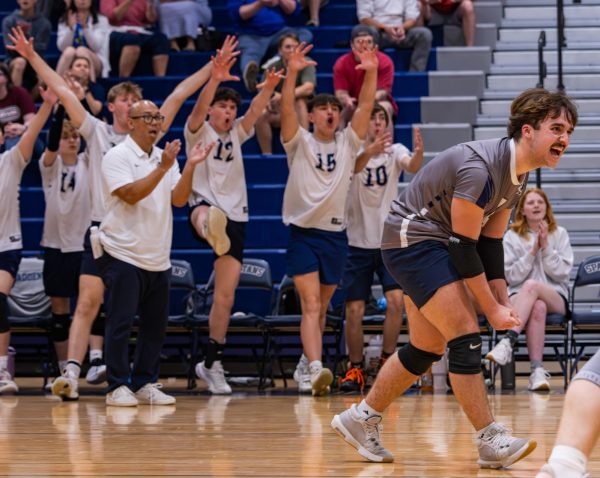Controversial Classes
New Black Literature, History classes stir up controversy
Overwhelmed by the Opposition: A concerned member of the community expresses her view on current issues in FHSD at the school board meeting.
A look into a typical English class will feature texts written by J.D Salinger or F. Scott Fitzgerald and history classes will often look through the lens of a white explorer. Traditional classes often feature narrow viewpoints that lack the inclusion of people of color; this is exemplified in the Francis Howell Schools district through the European History Class, which serves to tell the history of Europe through the perspective of a white European. In an attempt to promote inclusion, the district has created Black Literature and History courses, but these new classes have sparked controversy among parents and students, although these courses will not commence until second semester.
The new classes were created with the help of students within the district who could offer their perspectives. Senior Michaela Berry is a student who was selected to give her input on what should be taught in these classes.
“I feel like these new curriculums will hopefully provide equity to black students and make them feel as though they are a part of the Francis Howell community,” said Berry.
The Black Literature class will focus on works by black authors to expose students to black culture while enhancing their literary knowledge. This class is not only intended for black students but it will allow students from various backgrounds to gain a deeper understanding of black culture. Students enrolled in this class will engage in many traditional activities such as reading, writing and speaking, but it will simultaneously examine the struggles and celebrations within the black community. They will read books such as “The Vanishing Half” by Brit Bennett and “Born a Crime” by Trevor Noah.
English teacher Dr. Ashley Eiswirth has taken on the role of teaching the Black Literature classes and says that this class will celebrate Black voices and enhance students’ literary and analytical skills.
“It provides our Black students with a place of belonging and identity. It provides them an opportunity to see their identities represented in the curriculum,” said Eiswirth. “[As well as] see literature outside of one’s own culture to gain an understanding and appreciation of other cultures and people.”
Those advocating for these Black Literature and History classes believe that it is a step toward equality. Traditional classes often do not make an effort to offer black specific history and the struggles that they endured. African-Americans have a stark difference in history when compared to white Americans and this is reflected in their literature. This causes black students to oftentimes feel excluded in the classroom. Francis Howell saw this gap in education and the solution was to create classes centered around the unique history of African Americans. These classes will teach students about black culture, just as European History teaches about European culture.
“[In these new classes] they can learn how black people managed to sustain themselves in the face of adversity,” said Berry.
Although these classes were intended to improve Francis Howell and make students feel included, they have not been received in this light. Many parents have accused the district of promoting critical race theory. Brittanica defines critical race theory as an intellectual or social movement that states that race is not innate, but rather a social construct created to exploit people of color. However, many conservatives oppose the teachings of critical race theory. Missouri State Representative John Wiemann believes that inclusion comes from equal treatment of all races and that critical race theory does not accomplish this task.
“[In critical race theory] certain races [are] categorized as oppressed or oppressors, as well as [suggesting that] certain races [are] inherently bigoted,” said Representative Wiemann.
In in an effort to fight against the implementation of critical race theory into the Francis Howell School District a Political Action Committee (PAC), Francis Howell Families, has spoken out against these new classes.
Ken Gontarz, president of Francis Howell Families, is a vocal opponent of these new classes. He states that although the district has denied the teachings of critical race theory, he believes it is embedded within the curriculum.
Their accusations of critical race theory in the new curriculum stem largely from the assistance that the district received from Dr. Lagarrett King. King’s partnership with Francis Howell is viewed as problematic because of his extensive research in critical race theory.
On Oct. 7, Gontarz wrote an extensive letter to the members of the Board of Education stating his evidence of critical race theory in the Black History and Black Literature courses. One problem he observed was that the creators of the curriculum claimed the classes would not be a social commentary, but he feels as though this is untrue.
“Recall, once more, that the Board was told this course is not social commentary, according to a member of the Black History Curriculum Revision Team at the April 15, Board meeting,” wrote Gontarz.
He feels as though Unit 4 of the Black History curriculum is an example of social commentary due to the essential questions of the unit.
On Nov. 18, Gontarz went before the Board of Education to express his concerns regarding references to the 1619 project in the Black History course. On page 16 of the Black History Curriculum, as outlined by FHSD, there is a linked article titled “Article #3”, which references the 1619 Project. The 1619 project was an endeavor by the New York Times to challenge traditional history by placing slavery at the center of the United State’s history. Many conservatives oppose this project under the belief that it promotes divisive concepts.
“Article #3 is REPLETE with the 1619 Project endorsements and advocates this militant perspective of Black History,” said Gontarz.
Although these classes have been heavily disputed within the community, the hope is that once these classes commence they will provide inclusion as intended. The community can agree that they want all students to have a place at FHSD, but the ways in which they believe this can be achieved differs.
Your donation will support the student journalists of Francis Howell Central High School. Your contribution will allow us to purchase equipment and cover our annual website hosting costs. FHCToday.com and our subsequent publications are dedicated to the students by the students. We hope you consider donating to allow us to continue our mission of a connected and well-informed student body.



